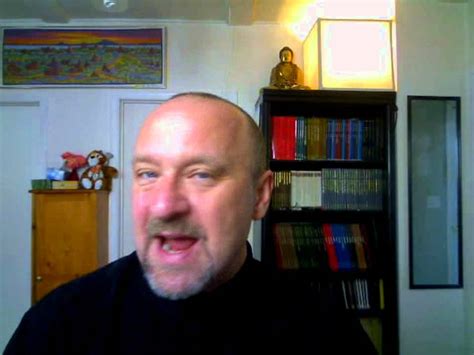A Quote by Jack Kemp
My wife had a miscarriage. We have rarely talked about it. It did make me more aware of the sanctity of human life, how precious every child is.
Related Quotes
He always reminded us that every atom in our bodies was once part of a distant star that had exploded. He talked about how evolution moves from simplicity toward complexity, and how human intelligence is the highest known expression of evolution. I remember him telling me that a frog's brain is much more complex than a star. He saw human consciousness as the first neuron of the universe coming to life and awareness. A spark in the darkness, waiting to spread to fire.
I have no personal stake in these people, Jean-Claude, but they are people. Good, bad, or indifferent, they are alive, and no one has the right to just arbitrarily snuff them out.” "So it is the sanctity of life you cling to?" I nodded. “That and the fact that every human being is special. Every death is a loss of something precious and irreplaceable.
Was it the act of giving birth that made you a mother? Did you lose that label when you relinquished your child? If people were measured by their deeds, on the one hand, I had a woman who had chosen to give me up; on the other, I had a woman who'd sat up with me at night when I was sick as a child, who'd cried with me over boyfriends, who'd clapped fiercely at my law school graduation. Which acts made you more of a mother? Both, I realized. Being a parent wasn't just about bearing a child. It was about bearing witness to its life.
I was afraid people wouldn't take me seriously, or would stop respecting me, if I talked about how bad I was feeling. The only people I talked openly about it with was my business partner, Dave Jilk, and my girlfriend - now wife - Amy Batchelor. They were amazingly supportive, but even then, I was deeply ashamed about my weaknesses.
A miscarriage is a natural and common event. All told, probably more women have lost a child from this world than haven't. Most don't mention it, and they go on from day to day as if it hadn't happened, so people imagine a woman in this situation never really knew or loved what she had. But ask her sometime: how old would your child be now? And she'll know.
Creating new people, by having babies, is so much a part of human life that it is rarely thought even to require a justification. Indeed, most people do not even think about whether they should or should not make a baby. They just make one. In other words, procreation is usually the consequence of sex rather than the result of a decision to bring people into existence. Those who do indeed decide to have a child might do so for any number of reasons, but among these reasons cannot be the interests of the potential child. One can never have a child for that child’s sake.
You cannot resist something to which you grant no reality. The act of resisting a thing is the act of granting it life. When you resist an energy, you place it there. The more you resist, the more you make it real-whatever it is you are resisting." "Every human being is as special as every other human being who has ever lived, lives now, or every will live. You are all meesengers. Every one of you. You are carrying a message to life about life every day. Every hour. Every moment.
That's very indicative to me of one of the things that really creates an aversion for me about having a child - this idea that every decision you make in your life has to be dictated by the child. And yet, I believe that if you choose to have a child you have an absolute primary responsibility to create a safe, loving environment.
She was fully, painfully aware that very rarely did midnight strike in two hearts at once, very rarely did midnight arouse two different equal desires, and that any dislocation in this, any indifference, was an indication of disunity, of the difficulties, the impossibilities of fusion between two human beings.


































